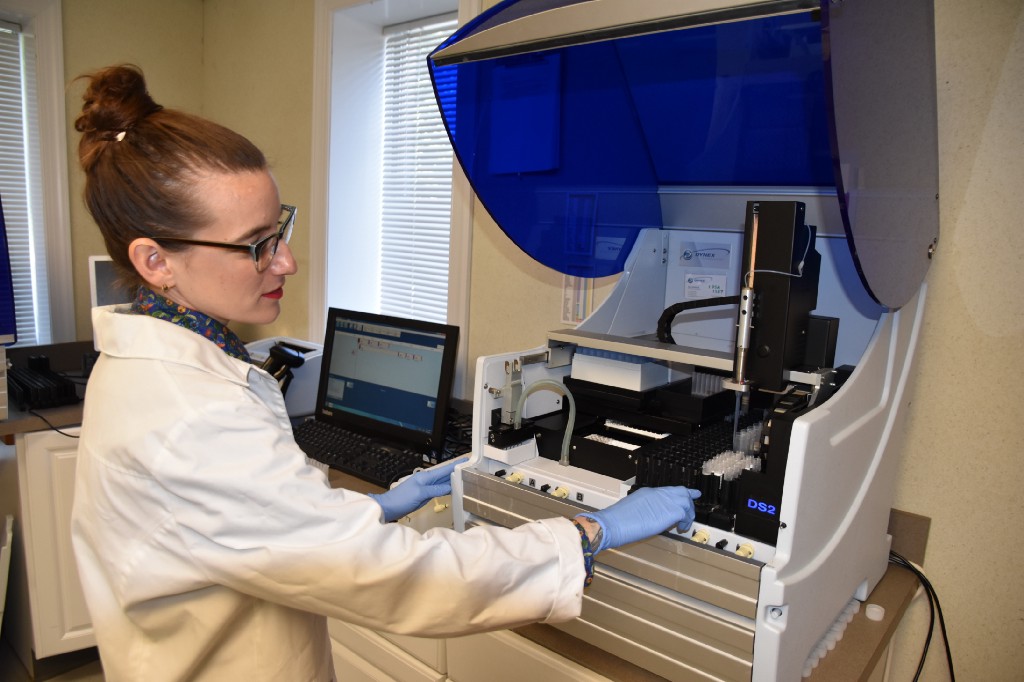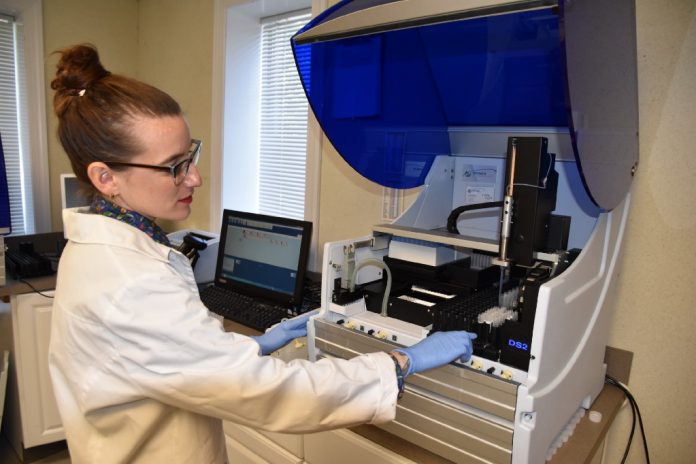Plasma Service Group is a unique company that takes blood plasma donations from speciality donors and uses it to develop research for a variety of diseases.

For some, the idea of getting blood taken is enough to make their knees wobbly. For others, it’s worth making a trip across the country.
Plasma Service Group, located at 1840 County Lane Road in Huntingdon Valley, is a cross-country destination. The business collects blood plasma from those living with a wide variety of diseases and uses it to create test kits to help others with those diseases. Individuals can use these kits to test whether they are positive for that disease.
Because only blood plasma is drawn, donors can donate up to twice a week, 24 hours apart. This is a different practice from whole blood donation, which is what most blood donations are. Whole blood donations withdraw all blood components; red and white blood cells, and plasma. They can be done once every 56 days.
For speciality donations, blood is drawn, the plasma is extracted, and the rest of the blood is returned to the donor via a pump. The extracted portion is quickly regenerated in the donor’s body after a normal amount of eating and drinking.
Only people diagnosed with one of the treatable diseases can donate their blood. PSG researches hundreds of different diseases, helping to diagnose and develop research.
“Without those with the disease donating, you can’t diagnose patients with similar conditions,” said Nicelle Porto, president of PSG.
Blood samples travel through three machines in an on-site lab. At the first machine, blood cells are scanned and magnified on a computer screen so the doctors can search for telltale patterns of disease in the cells themselves. If a telltale pattern is found, the sample travels to the next machine. That machine will analyze blood and form bands in certain positions to indicate particular diseases. The third machine will confirm what the second machine found, a tiny robotic hand rapidly transporting liquid samples into plastic vials.
PSG values each donation at $200, meaning donors can earn $400 a week. Porto and Katherine Boylan, vice president, said this can help donors foot their medical bills, which can get expensive.
“We think it’s always a good thing for donors to have extra income to help with their condition,” Boylan said.
The majority of the samples and research from PSG goes toward creating testing kits for diagnosing diseases. PSG has an active donor pool of more than 100 participants, but is always looking to expand. It caters to the donors’ schedule, offering evening and weekend hours and traveling to donors’ homes to ensure donations are completed with convenience.
One of PSG’s major focuses is helping research companies develop more efficient technologies for early disease detection. Recently, they contributed research and materials to Sjogren’s syndrome and myositis research. These two diseases are rare, so research on them is limited. Both can result in dry eyes and mouth.
“It may sound like a mild symptom, but it’s not. When your eyes are chronically dry, you can develop ulcers that affect your vision, and dry mouth can give you difficulty swallowing,” Porto said.
The plasma PSG provided helped create early detection kits for Sjogren’s.
The rarity of the work PSG accomplishes is proved by the distances people travel to donate and contribute to its research. Unlike many blood donation companies, PSG accepts donors from the LGBTQ community, and those with tattoos. ••
To learn more details on donation qualifications, and to sign up to be a donor, visit plasmaservicesgroup.com.
Logan Krum can be reached at [email protected]





